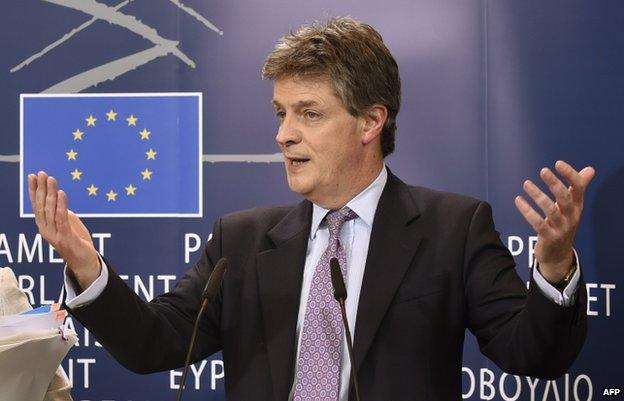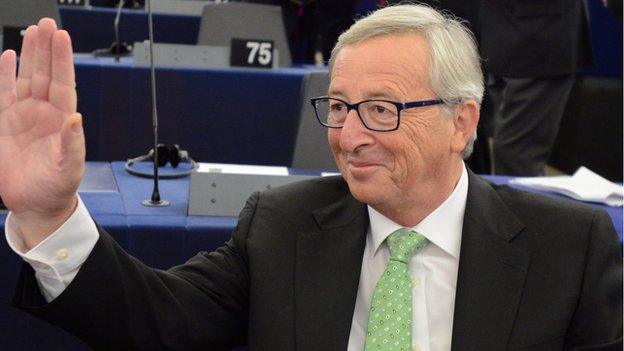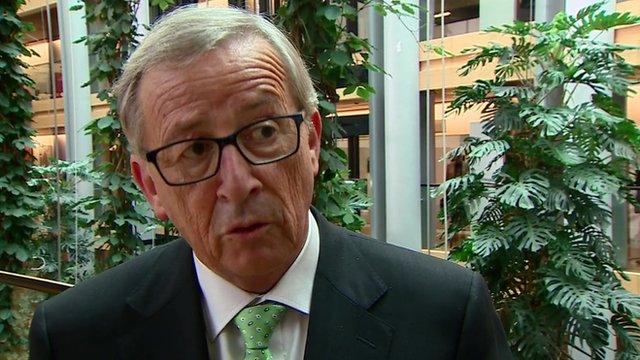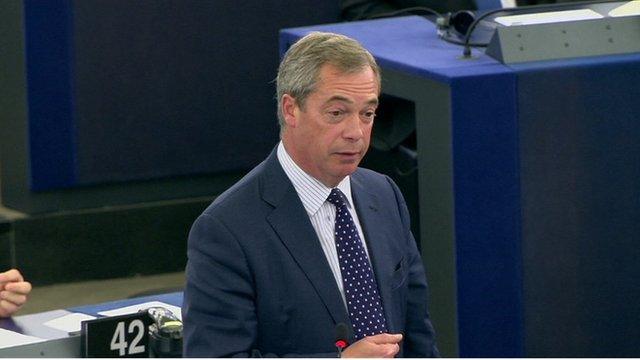Tories in EU parliament split over Juncker's Commission
- Published
- comments
Jean-Claude Juncker believes that flexibility is needed on all sides to deal with the problems the EU faces
In the European political calendar, today in Strasbourg warranted a big turnout.
The European Parliament voted to back a new Commission headed by Jean-Claude Juncker.
The UK commissioner is Jonathan Hill, with responsibility for financial regulation.
The view in Europe is that the UK got the post it most valued. Such a position had not been expected, particularly after Prime Minister David Cameron's open opposition to Mr Juncker.
In the European Parliament the Tories are part of the European Conservative and Reformist group (ECR).
When it came to the vote on the new Commission they could not disguise their differences.
They were split three ways. Some were in favour of the new Commission, a few were against and the majority abstained.

UK Conservatives were split over the Commission, despite Jonathan Hill being given a key post
When, later, I spoke to the new European Commission president, he was clearly irritated by the way the British members of the ECR had voted.
"I took Jonathan Hill into my Commission," he said, "and the ECR abstained. Is this British coherence?" Mr Juncker believes there was an understanding with David Cameron that the Tories would be supportive.
Someone close to Lord Hill said his view was that it was a pity the ECR didn't feel able to give its full backing as he believed this was a very strong Commission ready to engage with the UK.
In his speech today Mr Juncker did not touch on freedom of movement, an issue at the centre of David Cameron's plans to re-negotiate the terms of the UK's relationship with the EU.
Afterwards, Mr Juncker told me: "We have a treaty. Freedom of movement since the fifties is the basic principle of the European way of co-operating. These rules will not be changed.
"What can be changed? The national rules against abuses. There are abuses as far as freedom of movement is concerned but we cannot change European rules."
In other words, there is flexibility in addressing the abuses connected with freedom of movement, but when it comes to capping or imposing limits on the numbers of EU migrants, then expect opposition.
- Published22 October 2014

- Published22 October 2014

- Published22 October 2014
